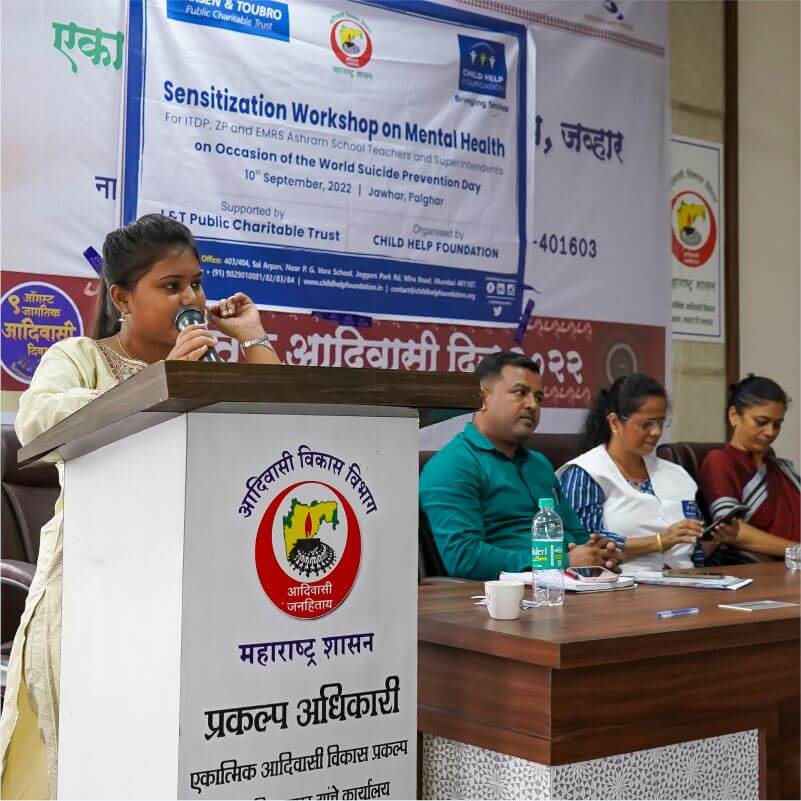The mental health of children and teenagers is a critical aspect of their overall well-being. Unfortunately, depression is not limited to adults; it can affect individuals at any age, including kids and teens. According to recent reports, depression rates are increasing among young people in India with prevalence rates ranging from 31% to 57%. Unicef also reports that one out of seven young people between the ages of 15 to 24 in India always feels depressed or has little interest in doing things.
Recognising the signs of depression in young individuals is crucial for providing timely support and intervention. In this blog post, we will explore the common signs of depression in children and teenagers and discuss effective ways to offer support.
Recognising Signs of Depression:
- Changes in Behaviour:Keep an eye out for significant changes in behaviour, such as withdrawal from social activities, sudden disinterest in hobbies, or a decline in academic performance. Noticeable irritability, mood swings, or increased sensitivity may also indicate emotional distress.
- Sleep Disturbances:Pay attention to alterations in sleep patterns. Insomnia, difficulty falling asleep, or excessive sleeping can be indicative of underlying mental health issues.
- Physical Complaints:Unexplained physical ailments like headaches, stomachaches, or fatigue may be linked to emotional distress. While these symptoms can have various causes, it's essential to consider mental health as a potential factor.
- Social Isolation:Depression can lead to feelings of isolation. Be concerned if a child or teenager starts withdrawing from friends and family or expressing a desire to be alone more frequently.
- Changes in Appetite:Noticeable changes in eating habits, such as a significant increase or decrease in appetite, can be a sign of emotional distress.
- Expression of Hopelessness or Despair:Listen to their words and expressions. If a child or teen consistently talks about feeling hopeless, or worthless, or expresses a desire to escape, these are serious red flags.
- Difficulty Concentrating:Depressed individuals may find it challenging to concentrate or make decisions. A decline in academic performance or an inability to focus on tasks could be indicative of an underlying issue.
How to Offer Your Support?

Recognising signs of depression in kids and teens requires a combination of vigilance, empathy, and proactive communication. By fostering a supportive environment and being attuned to changes in behaviour, we can contribute to the mental well-being of the younger generation.
- Open Communication:Create a safe space for open communication. Encourage the children to express their feelings without judgment. Active listening is crucial to understanding their perspective.
- Seek Professional Help:If you notice persistent signs of depression, consider involving mental health professionals. A qualified therapist or counsellor can provide the necessary support and guidance.
- Encourage Healthy Habits: Promote a healthy lifestyle, including regular physical activity, a balanced diet, and sufficient sleep. These habits contribute to overall well-being and can positively impact mental health.
- Stay Involved: Stay actively involved in their lives. Attend school events, participate in family activities, and show genuine interest in their hobbies and passions.
- Reduce Stigma: Educate yourself and others about mental health to reduce the stigma associated with seeking help. Normalize conversations about emotions and mental well-being Remember, seeking professional help is a strength, not a weakness, and it can make a significant difference in the lives of those struggling with depression. It is a courageous step towards self-care and a proactive choice to prioritise mental health. Just as we seek medical assistance for physical ailments, addressing mental health challenges with professional support is an integral part of overall well-being.
Overcoming depression can be a difficult task. It requires constant help and guidance from experts. Child Help Foundation understands the impact of depression on the overall well-being of an individual. Along with its crowd-funding partner Filaantro, it frequently organizes awareness sessions on mental health and suicide prevention.
